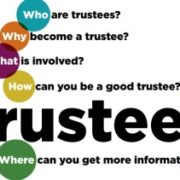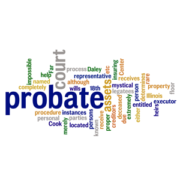Cleveland, Ohio, estate planning law firm, Baron Law LLC, Cleveland, Ohio, offers the following information on what your duties are as an executor of an estate. Contact Baron Law Cleveland to answer all your questions on what your duties are and to help guide your through the upcoming events which are about to occur and how to handle any issues which may arise.
Unfortunately, a close friend or family member has passed and in their will you were appointed as executor of their estate. At the time the will was drafted maybe you gave little or a lot of thought into what being named executor actually entails. Often, it’s the former, most people have little experience administrating an estate and little reason to overthink being named an executor. So, when the time comes to handle the responsibilities of an executor, it can be a confusing and overwhelming process.
An appointment to executor is a serious affair, but an understanding of the process and expectations of an executor can limit the stress of an already stressful situation. Since most people have little experience with wills, estates, or probate, everyone finds themselves asking the same questions when they remember they’re an executor. Note, this article is only a minor overview and contacting a Cleveland estate planning attorney in event of death or a potential or actual appointment as executor is always recommended. An experienced Ohio estate planning attorney can give you personalized guidance and recommendations to take as much of the burden off you as possible.
What is an executor?
Bluntly, an executor is the person, or persons, named in a will to administrate the estate after death. The executor is the individual responsible for seeing that the final wishes of the decedent, as denoted in the will, are carried out. The appointment of an executor is a logical, and necessary, consequence for the existence of last will and testaments. At the end of the day, wills are only pieces of paper. So, without someone loyal, trustworthy, and actually willing to carry out the terms of a will, a will would be a paper tiger and estate assets wouldn’t be distributed nor posthumous debts and obligations handled. So, if you’ve been named as an executor, congratulations, you’re likely the most responsible and well-adjusted of the decedent’s friends and family.
How is an executor appointed?
Executors are formally appointed as such by explicit provision in a last will and testament. Hopefully, the will holder informs the named individual of their selection of executor, but this is not a strict requirement, just courtesy and commonsense.
Just being named as executor in a will, however, is not sufficient to confer the job. When the will is probated, the following statutory requirements are observed by the court when selecting an executor:
- The named individual must be competent to serve as executor.
- The named individual must be at least 18 years old
- The named individual must be bonded
Implicit within the bond requirement is that the named executor has good credit and no criminal record, since failure of either would likely make it next to impossible in convincing an insurance company to take the increased risk and issue an executor bond. The cost of the bond itself is paid from estate assets. Note, however, a will has the discretion to waive the bond requirement if the decedent has faith that the named executor is trustworthy and doesn’t represent a risk of pillaging or mismanaging estate assets.
As with many things within the legal system, the final approval for executor appointment lies with the probate court. So, regardless of whether the formal requirements are met, a probate court may still reject an executor election and appoint a third-party administrator if a potential executor is perceived as unfit to serve. Since, a major purpose of drafting a will is to control who distributes estate assets, naming an Ohio estate attorney as a primary or successor executor is advisable as a probate court would have little reason to protest such an appointment.
Why is an executor needed?
The duties of an executor aren’t easy, however, there is satisfaction knowing that you did right by your friend or family. The duties of an executor are specific to each particular estate, however, there is a “core” group of duties and tasks each executor must fulfill. Every executor must:
- File the will and probate petition in probate court where decedent was domiciled at time of death and petition the court for executor appointment.
- Take possession, catalogue, and value all estate property within 3 months of filing the will for probate.
- Maintain and protect estate assets for the duration of the probate proceedings.
- Directly notify creditors, debtors, financial institutions, utilities, and government agencies of decedent’s death.
- Publish notices of decedent’s death, usually a newspaper obituary, which serves as notice and starts the clock running on the statute of limitations for creditor claims on the estate.
- Pay or satisfy any outstanding debts or obligations of decedent.
- Represent decedent during probate court proceedings.
- Locate heirs and named beneficiaries and distribute respective bequests at the appropriate time.
These duties occur during the probate process, which is a major reason why probate takes many months to complete. Because probate is such a time-intensive and laborious process, many people chose trust-based estate plans that avoid probate entirely. With trusts, estate assets can be distributed right away, no executor is needed, and many mornings, which otherwise would be spent in probate court, are freed for personal enjoyment. Contact an Ohio trust attorney to see if avoiding probate through the use of trusts is right for you and your family.
What if some dies without a will so that there isn’t an executor?
If someone dies without a will, i.e. intestate, the probate court will appoint an administrator for the estate. The formal requirements for an administrator are the same as an executor except administrators must be also an Ohio resident while executors can be anyone. The duties administrators perform are largely the same as executors.
Granted, the final result of the probate process is the same regardless of whether an estate is administrated by an executor or appointed administrator, however, who knows who the court ultimately will appoint. As such, it is always preferable to elect an executor an ensure a responsible and diligent friend or family member will manage your estate and see that final wishes are followed. Those living without a will or trust are playing with fire and could end up seeing significant portions of lifetime earnings or assets going to irresponsible family members or eaten by taxes.
If I’ve been named as an executor, do I have to be one?
No, there is no legal requirement to take on the responsibilities of executor, however, resigning will likely put the surviving family in a serious bind and force a probate court to appoint an administrator. An executor resignation, prior to or during probate proceedings, must follow established procedures and use particular legal forms specific to each probate jurisdiction. Consulting an estate attorney is the best way to find out what these procedures are and if resigning is necessary in the circumstances.
Executor appointment is not a job to underestimate. Often, the labor and time spent in fulfilling the duties go underappreciated, but it is critical to wrapping up decedent’s life and giving closure to friends and family. Though sometimes thankless, executors are entitled to compensation in Ohio. Namely, if executor sells real estate or personal property, they are entitled to 4% of the first $100,000, 3% of the next $300,000, and 2% of any remaining value. Further, 1% may be charged for any non-probate assets. Executor fees and the associated tax consequences are potentially complex issues, as such, contacting a Cleveland estate attorney is sensible.
For more information, you can contact Mike Benjamin of Baron Law LLC at 216-573-3723. Baron Law LLC is a Cleveland, Ohio area law firm focusing on estate planning and elder law. Mike can also be reached at mike@baronlawcleveland.com.
Helping You and Your Loved Ones Plan for the Future.
About the author: Mike E. Benjamin, Esq.
Mike is a contracted attorney at Baron Law LLC who specializes in civil litigation, estate planning, and probate law. He is a member of the Westshore Bar Association, the Ohio State Bar Association, the Cleveland Metropolitan Bar Association, and the Federal Bar Association for the Northern District of Ohio. He can be reached at mike@baronlawcleveland.com.
Disclaimer:
The information contained herein is general in nature, is provided for informational and educational purposes only, and should not be construed as legal or tax advice. The author nor Baron Law LLC cannot and does not guarantee that such information is accurate, complete, or timely. Laws of a particular state or laws that may be applicable in a given situation may impact the applicability, accuracy, or completeness of the preceding information. Further, federal and state laws and regulations are complex and subject to change. Changes in such laws often have material impact on estate planning and tax forecasts. As such, the author and Baron Law LLC make no warranties regarding the herein information or any results arising from its use. Furthermore, the author and Baron Law LLC disclaim any liability arising out of your use of, or any financial position taken in reliance on, such information. As always consult an attorney regarding your specific legal or tax situation.
“He who is always his own counselor will often have a fool for his client.” Old English Proverb est. circa












